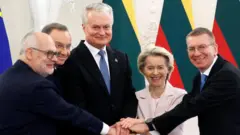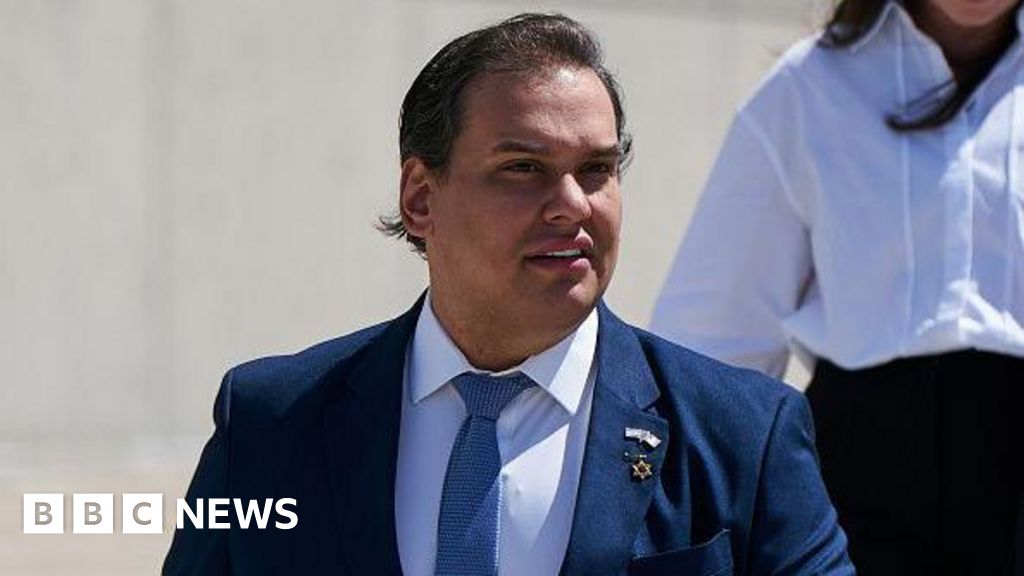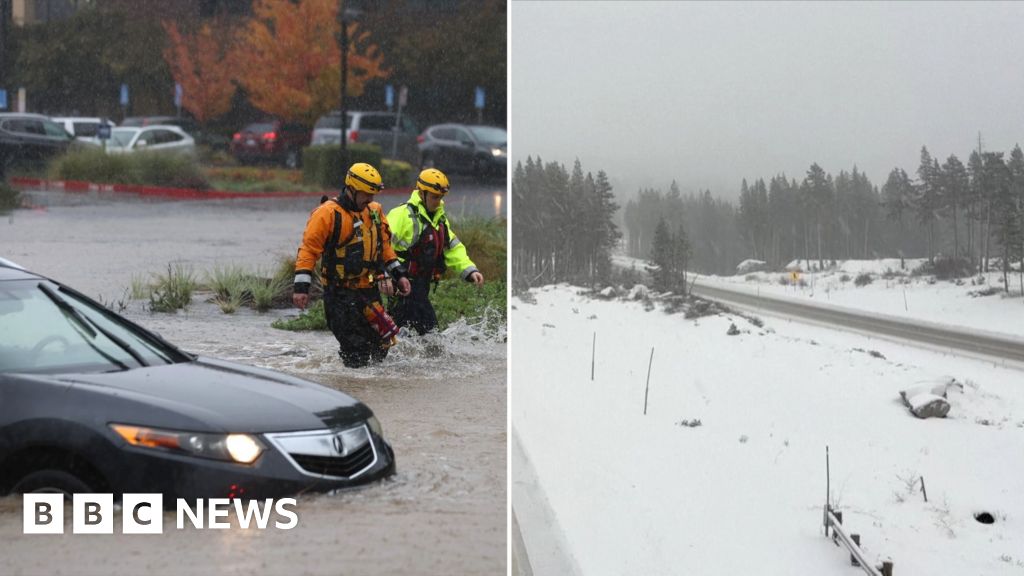BBC News
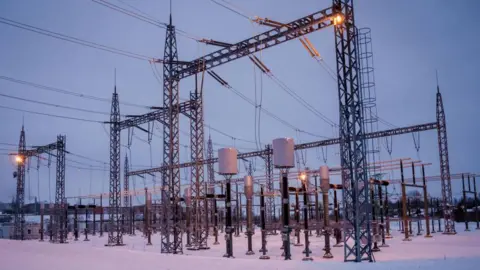 Getty Images
Getty ImagesThe Baltic states of Estonia, Latvia, and Lithuania are now unplugged from Russia’s electricity grid and have joined the European Union’s network.
Plans for the move – which have been in the works since 2007 – were seen as essential for European security and had been brought forward after Russia’s full-scale invasion of Ukraine in 2022.
“Today, history is made,” EU chief Ursula von der Leyen told a ceremony in Lithuania’s capital. “This is freedom, freedom from threats, freedom from blackmail.”
Polish President Andrzej Duda, praised it as a “truly symbolic moment” that would make the region “more secure and resilient”.
“It is the final step towards emancipation from the post-Soviet sphere of dependence,” he added.
The so-called Brell power grid – which stands for Belarus, Russia, Estonia, Latvia, Lithuania – is controlled almost entirely by Moscow and has long been seen as a vulnerability for the three Baltic states.
Now Nato members, they have not purchased electricity from Russia since 2022, but their connection to the Brell grid left them dependent on Moscow for energy flow.
In her speech, Ms Von der Leyen warned that Nato must remain watchful of possible Russian retaliation.
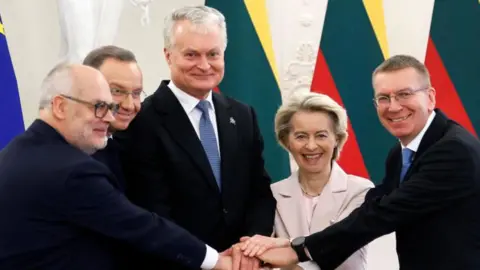 Getty Images
Getty ImagesPointing to a recent spate of suspected sabotage incidents involving electricity cables and pipelines in the Baltic Sea, she said “there is a pattern, and we cannot ignore it.”
In the past 18 months, at least 11 cables running under the Baltic Sea have been damaged. In a recent case, a ship from Russia’s “shadow fleet” of oil tankers was accused of damaging Estonia’s main power link in the Gulf of Finland. The Kremlin declined to comment.
Lithuanian President Gitanas Nauseda called for sanctions on Russia’s shadow fleet, saying recent incidents were of “great concern”.
Nato has not directly accused Russia but responded by launching a new patrol mission of the region named Baltic Sentry.
In total, around 1.6bn euros (£1.33bn) was invested in the project to transfer the three nations onto the EU’s grid, with the funds largely provided by the EU.
The transition took place over two days, with three nations disconnecting from the Russian grid on Saturday morning, operating as an “energy island” for around 24 hours, and plugging into the EU grid on Sunday.
Ukrainian Energy Minister German Galushchenko hailed it as a “significant event for the whole of Europe”.
